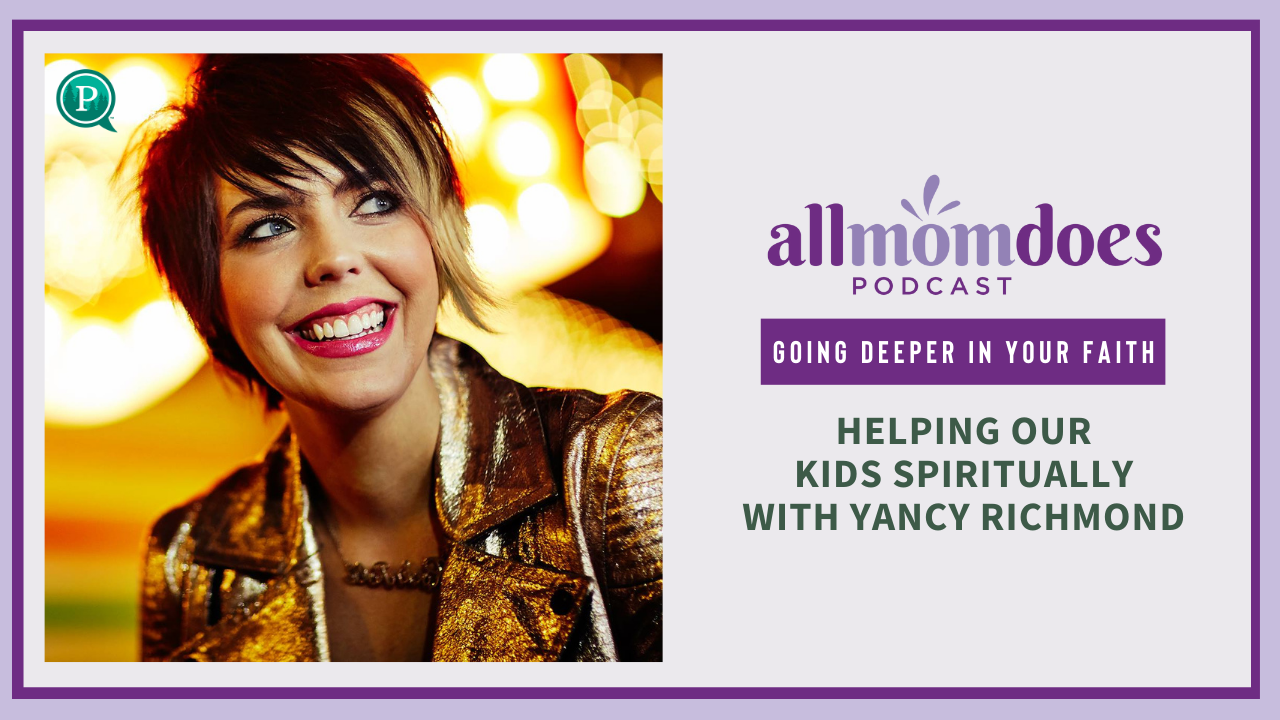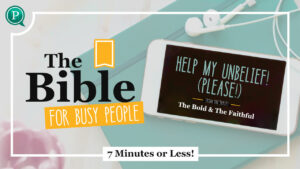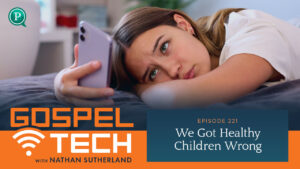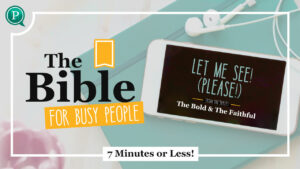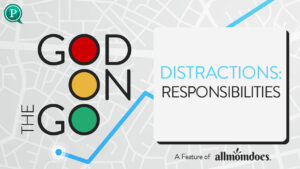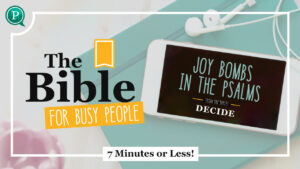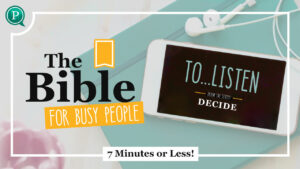When it comes to going deeper in our spiritual lives and in our times of praise to God, we can sometimes make it more complicated than it needs to be. Yancy Richmond is our guest today on the AllMomDoes podcast with Julie Lyles Carr, and she helps us understand how thinking through how we help our kids spiritually can also help us too.
Interview Links:
Find Yancy Online | Instagram | Facebook | Twitter | YouTube
Find Julie Online | Instagram | Facebook | Twitter | Pinterest
AllMomDoes: Instagram | Facebook | Twitter
Transcription:
Purposely your life, God’s purpose. Listen at onpurposely.com.
Julie Lyles Carr:
Today on the AllMomDoes podcast. I am so thrilled to have a guest who is going to be helping us as we continue in this series on spiritual growth. And today we’re going to talk a lot about our children and helping our kids with their spiritual growth. And so I am absolutely delighted to welcome to the show today, a Dove award-winning musician, artist, creative Yancy Wideman Richmond. Thanks so much for joining me today.
Yancy Richmond:
Thank you for having me. I’m excited.
Julie Lyles Carr:
Absolutely. So give our listeners some details on you and on your life and where you live, just so that they can kind of get a fuller picture of who you are.
Yancy Richmond:
Yeah, for sure. So I’m a mom of two boys. They’re 11 and 6, and my family lives in the Nashville, Tennessee area. So we’ve been here a good long while now and I travel the country making music for kids leading worship at camps and VBS events and doing family concerts and love just resourcing the church with tools that they can use in their weekend, Sunday morning programs to lead worship, to teach kids about worship. And so that’s a huge passion of mine and I’m excited to share with you guys today.
Julie Lyles Carr:
Absolutely. How did you decide to first of all, pursue music? Because that is a big undertaking. I just got back into town from Nashville and Yancy, Austin is always liking to think that it’s sort of the epicenter of a lot of music and there is a lot of music here, but wow you go to Nashville and in every mall <laugh> on every street corner, in every hotel lobby there is somebody playing music. So, how did you start to get into that industry? Because it is, boy, it’s pretty daunting to think about really tackling that and Nashville has so much great music, but there are a lot of amazing musicians. Yeah. How was that path for you?
Yancy Richmond:
Well, I honestly have known since I was single digits <laugh> in age, just really felt like God had put me on this earth to do music. And when I was around seven or so, had some opportunities just sing on a worship team at church and seeing my first little special as the offertory and children’s church and stuff. And it was just kinda like once I did some of those things, it was pedal to the metal. It was just knowing this is what I’m supposed to do. And it’s interesting being on this side of it because I’m starting to have those flashbacks and become aware as well that it feels like on this side of it, all the adults in my life were aware of this being on me as well. You know, just start remembering conversations with leaders and just little things and you’re like, they knew they knew, which is humbling to think about.
But music had always been my goal in doing Christian music. I did my first concert when I was 15 because I had an amazing youth pastor who felt God, ask him, you know what Yancy wants to do, how can you help her take a next step? And so he gave me the Wednesday night service one week, a couple months down the road, and I did my first concert. And that was just really one of those milestone moments of helping me then to share the songs that I had written with other people and start going out and trying to do other things in our city. We lived in Tulsa, Oklahoma at the time and made my first album when I was 17 and started coming back and forth to Nashville. Just had met a few people at some conferences that I attended, and it was kind of one of those, call me when you come to town and start setting up co-writes and just kind of started this whole process.
And so music in CCM was kind of always the goal. And I did that exclusively for, I don’t know, probably about five, six years, had an opportunity to start leading more worship for our church in Tulsa where we were at the time. And it’s kind of one of those one day a week turns into a very full-time job sort of <laugh> snowball situations for a few years. Somewhere along that same path then is where I had an opportunity to write some kids songs for a summer camp. They needed a theme song and it was kind of like, who do we know that can write a song? Okay, Yancy. So it was literally checking a box and just doing the thing that they asked me to do. I had grown up around children’s ministry and never in a million years had thought about doing something with that in regards to the music but I kind of say, God led me on this journey where it was a bunch of easy yeses, it was lot of minimal commitment, right steps, and you kind of get farther down the road and get to a certain point where it’s like God’s shining a light crystal clear on this path.
And so let me change my focus and do that. So I’ve been focused on kids with my music since 2008 and this fall I celebrate 25 years since I released my first album. So it’s been quite a big journey.
Julie Lyles Carr:
Yeah, absolutely. I’m really fascinated that you started out on a path when you were still in your teens and I think it would make complete sense that you would go, oh, I’ve got these people speaking into my life, this is a heading, I’m getting opportunities, and it looks like it’s in this direction. And then the further you get it begins to at course, correct a little bit. Sometimes Yancy, I think it can be hard for us either with our kids or with ourselves when we feel like we’re having some success in a particular direction and maybe it’s a preferred direction or maybe it’s the one that we just thought was what we were supposed to go after. When we start seeing some of that course correction, if you will, it can almost sometimes feel like, oh, are we having vision drift, mission drift? Are we not still going for the thing?
Are we distracted? We’ve had some great writings and recent years from people talking about, you know, want to really be careful what you say yes to. You wanna be careful what you say no to. And sometimes a lot of that advice is saying, don’t lose your heading, you know, said you wanted this. How can we remain pliable for ourselves, for the direction of our kids’ lives so that we don’t miss an opportunity like this that can take you into something that might not have even known, you might not have even known it was a thing, or maybe it really wasn’t even much of a thing until Yancy, you kind of really created this genre where you really take it in a direction that God wants you to go. How do you discern all of that?
Yancy Richmond:
I don’t think God could tell my 16 year old self.
Julie Lyles Carr:
Yeah.
Yancy Richmond:
The number one song in my catalog is going to be a song called Jose and a Rock that I wrote for preschoolers. At that point, I wasn’t ready for that part of the calling. What my response to it would have probably been very different than my response was once I got into my late twenties. And so the thing that I have noticed too, cuz as I came to Nashville and met with different people and almost had so many different record deals and major things happen that then didn’t. And I remember one day I was meeting with A&R guy and he was like, you can, knowing some of this history and doors closed that had happened. And he was just like, okay, what’s the skeletons in your closet? Why does this keep not working out? And I was like, oh, I don’t look at it that way at all. I look at it as truly God guiding my steps and closing the doors that I’m not supposed to walk through. And it’s just one of those conversations that forever sticks with you to think about. But on this side of it, I can completely understand and see God needed to send me to Nashville so I could learn how to actually write a song and actually record great songs because those two things don’t always
Julie Lyles Carr:
Go together
Yancy Richmond:
go In hand with kids music.
And so I learned how to do it for real, and I learned how to do it well. And even had a song that I wrote for a group called Avalon that went number one on the radio and all that kind of stuff. I needed to learn things about the music business and about this town and about making music, but God had a different purpose for it. And so it’s easy to see on this side of it where it makes sense. And yeah, I grew up around children’s ministry and I learned to make music, and so why not mix those thing two things together? That’s genius and everything. But I also realized if some of those label deals that I was trying to happen back in the day, that would’ve been just CCM music if they had happened, I realized as well walking through those doors and past would’ve probably not led me to a juncture in a place where I would’ve said yes to the kids’ music thing either.
So again, that’s where it’s the closed doors and what sometimes all of a sudden feels like a dead end or, oh, we gotta back up. Just like when you’re in a maze and you get to certain points, you’re like, okay, that’s not it. Let’s find another path. I think sometimes that is part of the journey of just getting you to be on that path that he truly does have for you, and you do pick up different things and experiences and learn different things along the way. And I’m able to reflect on that now and see none of it was in vain or without purpose. There was actually a point where I was working on staff at our church and I realize now there can be peace in the midst of tension because on one hand I knew I was supposed to be there and had peace.
I was supposed to be there. On the other hand, there was a lot of tension where I was actually even asking questions, where did I miss it before? If this is what I was going to do then Was Nashville a mistake? Was going in co-writing songs a mistake? These two things don’t feel like they worked together at the moment. But again, I was learning all about church culture and leading worship teams and developing musicians and worship leaders and all these things that I now need on the church ministry side of what I do of speaking to church leaders and teaching them about leading kids in worship and all of that. And so I needed that experience even though it was a point in the journey where it was these things don’t go together and feeling like, did I mess up before? But I think it all comes down to so much in life, and I’ve got so much more I could share about this topic, but just comes down to listening to God’s voice and following peace and doing the thing that he’s asking you to do. Because I like to say it this, the ripple effect of your obedience goes so much farther than you could ever imagine.
Julie Lyles Carr:
Ooh that is powerful. And Yancy, what wisdom, because I have to share mean my career has taken all these weird left turns, right turns, things that I would’ve told you finally break through green light and then slam <laugh>. And in our culture today, both in the secular culture and within the faith community, that’s a lot of times where we tell somebody, oh no, you gotta karate kick that door in. That’s some kind of barrier from the enemy or whatever. That beautiful way that you have had of looking at it and saying, I love that visual of being in the maze. And when you hit that dead end, go, okay, we gotta find a different path, we’ve gotta go a different direction. And allowing God to continue to hone that, to really bring you home is so incredibly powerful. Talk to me about why we have a need to do music for children that, you know, and I both are probably familiar with kids Bop and stuff like that where you take a standard and then you put some kids’ voices on it and you change it up a little bit and then you kind of repackage it as this offering to kids.
And what is different about what you do and how do you approach it in a way that is so specific for children and for where their spiritual needs really are at that season of their life.
Yancy Richmond:
So I I’ll say I believe fully 100% in the power of music. I know that it is an amazing way for us to learn and remember. And when I reflect on my own childhood, I can picture driving around and my mom’s minivan that I think was the first ever minivan <laugh> that they made in the eighties running errands. And I remember music that was playing in our car, and to this day I can hear something said in a sermon, I can come across a certain scripture, I can be in a meeting where a certain biblical principle is talked about. And I have a song that I heard as a kid that honestly I haven’t pulled up the recording and listened to in 30 years plus. And yet still I can sing that song as soon as my memory is triggered. And so that excites me because I realize that hey, what we play for our kids really does matter.
And music is sticky, it has amazing memory. And so just to help parents become more intentional about what they are playing as they run those errands, as they drive to school, as you’re headed to soccer practice or hockey practice as we do in our house realizing that it’s not just time filler and it’s not just having the radio on, but you’re planting seeds on the inside of them. So with what I do specifically for kids, I think the big difference of normal music <laugh> for grownups and what I’m doing with kids is just being aware of things like attention span, how long the song is, how much repetition is in it, the vocabulary that’s in it. I make two different kinds of kids’ music. So I do a series for younger kids for Little Praise Party. I also make some music that sounds very, very normal, that’s geared for preteen ages.
And so there’s different things about those two. But two things, but especially I would say on the Little Praise Party side of things, it’s just like as a parent how you might cook the same meal, you might put the same steaks on the grill or make the same dish of spaghetti or whatever that looks like. But how you then put that on the plate and the bite size pieces that you cut up for your two year old versus your six year old versus your 10 year old, you’re eating the exact same entree, but the bites that you take of it are very different. And so that’s where I’m, as a songwriter, I’m trying to take a biblical truth from God’s word and go, okay, how can I chop this up and make it palatable so that a five-year-old can understand it? And so that’s finding the right vocabulary to use to put it into words they can understand.
But then it’s also just putting the right mix of fun or physical engagement or whatever that is to just make it stick. And so that’s what I get the job of doing is just helping to impact kids and their families. Cuz honestly, I have plenty of parents that tell me they’re able to actually enjoy my music because I like to think it sounds pretty normal. Some, we’ve all heard that kid’s music that just sounds like nails on a chalkboard or you’re just like, where’s the ice pick? Let me go ahead and
Julie Lyles Carr:
Baby Shark comes to mind.
Yeah, yeah. There are those things. And someone one day on Instagram they posted I mean, I love you, I really do. But when it’s a hundred times back to back on repeat in a row, I start losing my mind. I’m like, okay, that’s fair. But as long as at the core you love and appreciate it, we’re good.
I can’t do anything about <laugh> repeating it or whatever. But yeah, I think that’s the biggest difference between you listening to the latest Newsboys album or Kari Jobe album or whatever. And what I’m doing is I’m just intentionally going, I wanna make sure the five-year-old gets it I wanna make sure the eight-year-old will not roll their eyes. I wanna make sure that I’m showing the 10, 11, 12 year old that Jesus is relevant to their life based on what they’re hearing based on what it sounds like, that it’s not lame and clueless as to what culture might be like in their eyes. And so it’s fun. I love it.
What a beautiful challenge to think through what is going to really intersect the lives of our younger people. Music is so incredibly sticky. You may have seen the documentary and Wow, Nancy, I wish I could remember the title of it. My mother went through the Alzheimer’s journey and watching her go through that and watching how music was, what was retained, even when she wasn’t completely clear who I was or other events, you could start a hymn or a John Denver song and she was right there with you. She knew it. And to your point, I am floored by songs that will come up that I know, like you said, I haven’t heard, and I don’t know how long some of that has to do with Flock of Seagulls, but that’s another story. But there will be music that comes up that I know I probably haven’t heard since I was a young child.
And the way that God designed our brains when we put music and words to something, our ability to remember that even in a season in the ravages of Alzheimer’s, it still retains. And there’s something so powerful to me about watching a young child, know words to songs of faith and something so powerful about seeing someone at the end of their life remember the words that they were taught as a child through music about faith. It’s absolutely incredible. Yancy, how do you discern what kids are ready for when it comes to topics surrounding our faith? Because obviously we love to talk about God’s love and God’s compassion and being part of the family of God. And our faith also has some really challenging themes when it comes to sin, when it comes to the violent death of Jesus, when it comes to some of the things that happen in the lives of those that we often look to as the saints, some of the sacrifices that they made, some of God’s anger toward his children when they went away from his wisdom and righteousness. How do you distill all that down? What ages and stages do you think kids are ready for some of those topics and what are the things that we wanna make sure are foundational first maybe before we get into some of that?
Yancy Richmond:
Man, I don’t know. I think some of it depends on the child as far as that goes. And if I’m honest, many of the subjects that you just referenced, I mean, it’s not like I have a song about <laugh>.
Julie Lyles Carr:
Yeah, yeah. <laugh>
Yancy Richmond:
About most of those things. I haven’t done a song about the sacrifices.
Julie Lyles Carr:
You don’t have some tune about adultery or something.
Yancy Richmond:
No, I know. So I, I’ve personally been able to curveball a lot of that stuff. But if I think about it just in my own mom hat and my sons, I think some of it just depends on the kid. My oldest I don’t know if he’s the old soul or whatever, I feel like he’s been able to handle things, even shows that he watches, he knows what we believe as a family or certain things where it’s like, okay, we very much disagree with that, but I feel like he’s been able to handle things that were not kid <laugh> just more. And that being said, one of his biggest obsessions in the Bible is Revelation. Just all the stuff that’s there that’s intriguing to him and that’s interesting. And so where he’s super-duper drawn to that. On the flip side my younger child, we haven’t arrived at a stage where he’s just telling me all about the dragon and the <laugh>.
Yeah, yeah. He’s not there yet.
He’s snake or whatever. I’m so obsessed with Jonah and the story of Jonah and wants to read it every single time that we’re reading his Jesus storybook Bible. And it’s one of those things as a parent that I’m like, oh God, what do you have in store for him that he needs this story just completely branded on his little spirit? Because it’s just like, what is it that you have for him to do? Because he is so drawn to just that story of Jonah and his disobedience and his willingness to do what God was telling him to do. And so it’s one of those things that’s exciting and frightening. As a parent.
Julie Lyles Carr:
That’s a big story.
Yancy Richmond:
Wow. He’s really drawn to this. But I think some of it’s just the different child and it’s just like everything, it’s different phases of growth and development. It’s the same thing with our bodies. It’s the same thing with our ability to read and write and do math and all the things. And I think the gospel’s hinged on love. And with the youngest ages, even when I think about worship, it’s like I can equate to young kids that we sing to Jesus because we love him, because I know they understand and grasp the concept of love. They love their mama, they love grandma, they have their favorite doll or stuffed animal. Love exists in their life. And so I can talk to them about the things of God in relation to love. And that makes a lot of sense. And I think then just as the years go by, yeah, it grows and more details get added to the picture
Julie Lyles Carr:
Right, right.
Yancy Richmond:
To just give it the gravity and the weight of really what the gospel fully means and represents.
Julie Lyles Carr:
I love that. Taking a good look at what our kids are drawn to in terms of the different Bible stories. And you’re so right. I mean with mine, it was all over the place. I had ones who were really fascinated in angels and what that meant. And I had ones that really wanted to drill down into some of the numbers of the thing, why 4,000 at this miracle? Why 5,000 at that? And I had others who were just really happy to review again, Noah and the Arc. And that was mainly about the animals. It wasn’t really about the sin of the world and a redemption story. It was just kinda like, oh. So you’re right. I think there is a lot of pliability in taking a look at what our kids are drawn to and making sure that we’re doing what we can. Because that can be a God nudge.
You’re so right. That can be something that they’re going to need in their life. How do we as parents, and you got to experience this as a young person, and I know that you’re now paying it forward in all of the teaching and leading that you are doing for those who are in leadership over kids, how do we make sure that we are allowing our child to go in the direction that God is drawing them rather than getting a lot of our own ideas and concepts around the way that we know God’s interacted with us or led us. And I’m not talking about somehow watering down truth or I’m not talking about that, but I am talking about the path that God has for each of his kids and the directions that he wants each of them to head. How do you discern that as you’re thinking about the music that you’re presenting and the experience that you had? Because as you said at the top of our conversation, you had people speaking into you from a young age and you look back and go, wow, and I love that you see that as confirmation. I know other people who’ve had an experience who felt like they were pushed into going into certain directions in ministry or leadership, and they felt really a burden and not a godly burden to go that direction. So how do we do that well?
Yancy Richmond:
Well, I feel like it’s so many different layers of things. I think number one, most important just comes down to teaching your kids to hear God’s voice and to always be listening for just that little tug in your heart, that little all of a sudden idea or thought or smile at the person that’s checking you out of the store. It’s not always something that’s this grand act of faith we saw with Noah’s Ark or Abraham or whatever. Sometimes it’s in the little bitty ordinary moments of our day. But I think it’s in all those little bitty guesses that it’s kind of a test from God of, are you listening? Are you hearing what I’m saying? And are you going to do the thing I tell you to do when it’s as simple as smile, at the lady checking you out, ask how she’s doing compliment.
Even recently, I was sitting on an airplane and there was a family traveling across the aisle from me. There was a girl, she’s probably 12, 13 maybe. And I just had that thought inside of, I need to tell her that she’s pretty. And I even honestly sat there wrestling. Cause I was like, I don’t wanna be a creeper and I look like I’m staring at her or whatever. And so I kind of sat there not doing it, but as I kept sitting there, I just knew, I’m like, you need to tell that girl that she’s pretty. And so finally I grabbed her arm or whatever, and I just told that young girl, I was like, you’re beautiful. And she
Julie Lyles Carr:
Lit up.
Yancy Richmond:
She lit up. And I don’t know what was going on in her life or what could be going with her friends or whatever, but I know that young girl needed to hear me say those words that day as she went to, I think have a family vacation with her family. But I look at those little bitty moments as tests for the big serious things that God would ask me to do with my ministry and my music and all of that. And so I think when stuff comes up with my boys, it’s just teaching them to pray. And it’s not always telling them point blank, well, this is what you need to go do. But inviting them to invite God into that situation and give them room and space and opportunity to ask God for wisdom about it and to let them listen for his voice, to give them direction, of what he wants them to do.
Julie Lyles Carr:
Absolutely. I recently saw a cartoon I thought was cute. It was two moms and two kids, and one of the moms and one of the children had a book they were reading. And the mom sitting next to the mom with the book said, how do you get your kids to love to read? And the visual is, well, because mom’s reading, right? So right. This opportunity we have every day, as you said, that it doesn’t have to be this super targeted, outlined curriculum, if you will. Just that willingness to play things in the car that are becoming seeds in our kids’ hearts, allowing them to see us living out the commandment of being, kind of loving our neighbors well, of smiling at the person at the checkout counter and holding a door, grabbing a bag for somebody, whatever that is. So those are the moments I think that really create the fertile ground for spiritual growth when our kids see us do it. Well, Yancy, I know you’ve got two great projects that have come out. You’ve got a music project and a book. Where can listeners find out about those?
Yancy Richmond:
Oh yeah, for sure. So you can go to yancyministries.com as my website, but specifically music wise for your kids you can listen to that on any streaming platform. So Spotify, Apple Music, Pandora, Amazon, YouTube, all the things, just type in Yancy and you will find it on YouTube. My channel is Yancy, not Nancy. And that’s kind of the same thing. All my social media, whether it’s Facebook or Instagram or Twitter, my username is Yancy, not Nancy. So definitely check that out. Little Praise Party: Out of This World is the newest one for young kids. And let me just say something kind of to the last thing that you were saying. I just wanna challenge parents again about the being intentional to what you listen to in the car, because I can tell you both in the testimonies that I I’ve had from other parents that have messaged me and told me about it, but I can also tell you within my own family that those songs lead to conversations where kids hear something in the song and they ask a question about a lyric that they heard, and all of a sudden you’re running your errands or you’re doing your thing, but it becomes a discipleship moment for you where you get to actually unpack that spiritual concept a little bit more to help your child understand that thing that they were questioning.
I’ve heard parents tell me about all of a sudden at bedtime, it came up where the child was asking a question about something that was in the songs, the music that they had been listening. And it’s just those moments where it’s like that conversation would not have happened without the child being exposed to that thing that they’re hearing. And so I just challenge and I empower you, moms, grandmas, aunts, all the things that are listening, like play for your kids, the things that you want to plant down deep on the inside of them because it does take root and it does grow and it sticks with them for years to come. About my book, I wrote a book All About Kids Worship. And so especially if you are a church leader or worship leader of any kind, if you work with kids or student ministry, I would challenge you to read it.
I have had moms read the book. There’s a very practical section of the end that if you’re not working in a church, probably doesn’t make as much sense for you, but probably the first half, two thirds of the book, it’s really all about worship. It’s all about the power of kids worshiping, and it’s about things we can learn from David’s life as to why I believe he was given that title, man after God’s own heart. And that’s his muscle, his reflex that he had in his life to worship. And so the book is called Sweet Sound, the Power of Discipling Kids in Worship. Kari Jobe wrote the forward for me, and you can learn more about it at yancyministries.com/sweetsound. I would love for you to read it. Audiobook, e-book, print, all the options things are there.
Julie Lyles Carr:
Awesome. Awesome. And we’ll have Rebecca get that into the show notes so that listeners can go and find all of that. Yancy, I can’t thank you enough for being on what a powerful factor that we often don’t think about. We think about it for ourselves a lot of times, but we don’t think about all the time for our kids, just this beautiful and very, in many ways, simple way to continue to get God’s word into our kids when we’re running around doing all the things. Yancy, thanks so much. So appreciate you.
Yancy Richmond:
Thank you.

